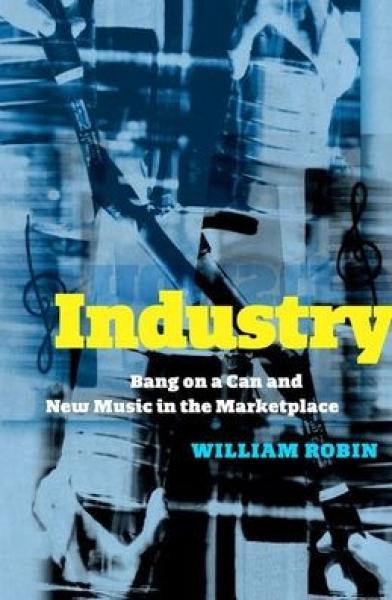Description
considered box office poison. Through the 1980s and 1990s, three young, visionary composers--David Lang, Michael Gordon, and Julia Wolfe--nurtured Bang on a Can into a multifaceted organization with a major record deal, a virtuosic in-house ensemble, and a seat at the table at Lincoln Center, and in
the process changed the landscape of avant-garde music in the United States.
Bang on a Can captured a new public for new music. But they did not do so alone. As the twentieth century came to a close, the world of American composition pivoted away from the insular academy and towards the broader marketplace. In the wake of the unexpected popularity of Steve Reich and Philip
Glass, classical presenters looked to contemporary music for relevance and record labels scrambled to reap its potential profits, all while government funding was imperilled by the evangelical right. Other institutions faltered amidst the vagaries of late capitalism, but the renegade Bang on a Can
survived--and thrived--in a tumultuous and idealistic moment that made new music what it is today.
"Amidst the heated fray of the Culture Wars emerged a scrappy festival in downtown New York City called Bang on a Can. Presenting eclectic, irreverent marathons of experimental music in crumbling venues on the Lower East Side, Bang on a Can sold out concerts for a genre that had been long considered box office poison. Through the 1980s and 1990s, three young, visionary composers-David Lang, Michael Gordon, and Julia Wolfe-nurtured Bang on a Can into a multifaceted organization with a major record deal, a virtuosic in-house ensemble, and a seat at the table at Lincoln Center, and in the process changed the landscape of avant-garde music in the United States. Bang on a Can captured a new public for new music. But they did not do so alone. As the twentieth century came to a close, the world of American composition pivoted away from the insular academy and towards the broader marketplace. In the wake of the unexpected popularity of Steve Reich and Philip Glass, classical presenters looked to contemporary music for relevance and record labels scrambled to reap its potential profits, all while government funding was imperilled by the evangelical right. Other institutions faltered amidst the vagaries of late capitalism, but the renegade Bang on a Can survived-and thrived-in a tumultuous but idealistic moment that made new music what it is today"--
"Sparks vital conversation about what music based on solidarity might one day look like." -- The Wire
"In the past decade, William Robin has established himself not only as one of America's most formidable younger musicologists but also as an incisive, eloquent writer in the public sphere. His study of Bang on a Can gives lavish evidence of his multisided brilliance: it is at once an absorbing
historical narrative and an exacting work of critical analysis. No scholar or fan of contemporary American music can do without it." -- Alex Ross
"William Robin breaks important new ground with this thick historical and ethnographic description of how networks of ensembles, institutions, listeners, and new technologies come together to forge new experimental music communities and marketplaces. Much more than a history of a new music ensemble,
this book incisively chronicles a larger movement aimed at revitalizing expression, reception, and diversity in contemporary American classical music." -- George E. Lewis, author of A Power Stronger Than Itself: � The AACM and American Experimental Music
Product Details
- Oxford University Press, Brand
- Feb 22, 2021 Pub Date:
- 0190068655 ISBN-10:
- 9780190068653 ISBN-13:
- 320 Pages
- 8.3 in * 5.9 in * 0.6 in Dimensions:
- 1 lb Weight:




